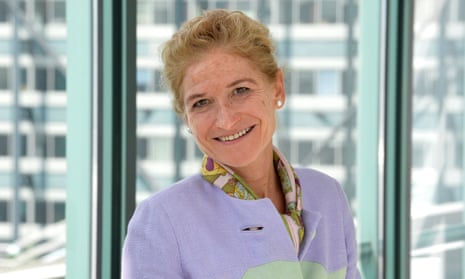My friend Michaela Bergman, who has died of cancer aged 60, was a social development expert whose work took her to more than 40 countries.
At institutions such as the European Bank for Reconstruction and Development (EBRD) and the Asian Infrastructure Investment Bank (AIIB) she demonstrated amazing powers of persuasion, convincing policymakers in national governments, local authorities and the private sector to support projects that would deliver impact while safeguarding the livelihoods of women, girls, the marginalised and the vulnerable.
That could mean anything from persuading them to draw up robust plans for the resettlement of people affected by infrastructure projects, to supporting poverty alleviation schemes or working to provide identification documents to displaced people.
Michaela was born in London to Viorica (nee Seiff) and Alan Bergman, both dentists. She did her secondary education at Queen’s college in Westminster and went on to obtain a law degree at King’s College London in 1983, later gaining an MSc in social anthropology from the LSE in 1995.
After starting her career at the Institute of Child Health at Great Ormond Street in London, she studied Mandarin in Taiwan and in 1989 returned to London to work at Help Age International, setting up services such as meals on wheels and podiatry clinics for older people in eastern Europe, where social services had collapsed when communism fell. She was then senior democratisation officer for the Organization for Security and Co-operation in Europe’s mission to Bosnia-Herzegovina (2001-02), before working as a consultant on social issues with the UN, DfID and the Asian Development Bank.
She joined the EBRD in London in 2005 as their first social specialist, working to ensure that projects financed by the bank did not have adverse impacts on local communities, and in 2012 was appointed as the EBRD’s chief social counsellor, representing it on issues relating to the social aspects of its environmental and social policy.
She then went on to lead the development of the EBRD’s first ever strategy for the promotion of gender equality.
In 2017 Michaela joined the AIIB in Beijing, taking on the role of principal social development specialist, leading the bank’s work on social issues and its liaison with civil society, as well as developing its approach to the promotion of gender equality in infrastructure.
She was a clever, sharp-witted woman who had a zest for life and a great sense of fun, someone who was loyal and generous to her friends and deeply committed to her clients and stakeholders.
Michaela died of a kind of cancer, linked to a BRCA gene mutation, which is particularly common among the Ashkenazi Jewish community. A scheme by NHS England providing free genetic screening for the BRCA mutation to the Jewish community will be fully launched in late 2023.
She is survived by her parents, her brother David, her niece Laleh and nephew Zizou.
